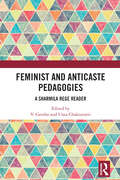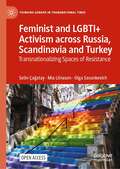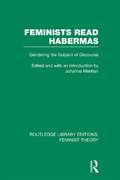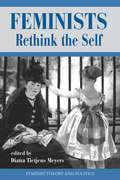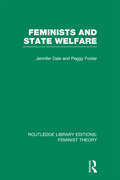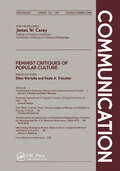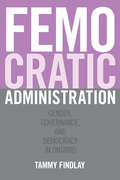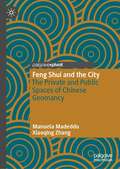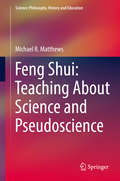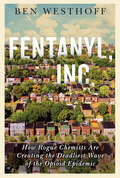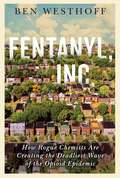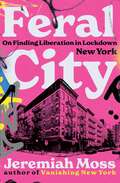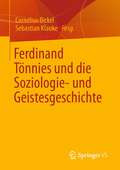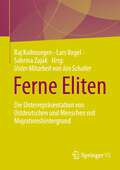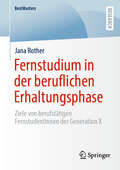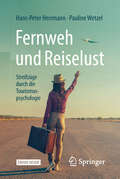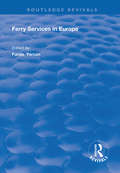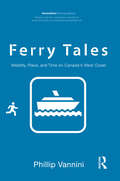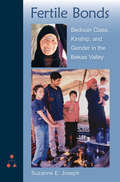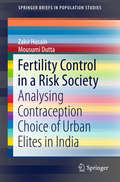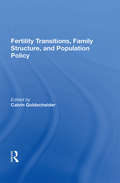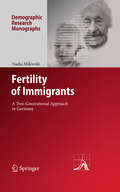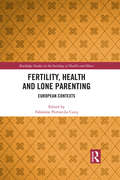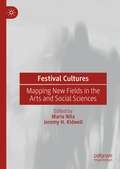- Table View
- List View
Feminist and Anticaste Pedagogies: A Sharmila Rege Reader
by Uma Chakravarti V. GeethaThis book comprises the collected essays of Sharmila Rege (1964 – 2013), which span a range of themes, including critical perspectives on women’s movements, Dalit standpoint feminism, and the relationship between Women’s Studies and other disciplines. Written over two decades and more (from the 1990s to 2010), these pioneering essays draw from the struggles and writings of Dalit women, the long history of anticaste thought in Maharashtra and global feminist debates. Equally, they address enduring concerns to do with caste and gender, and call attention to the inseparability of struggles against caste and patriarchy.Framed and annotated by an introduction that places Sharmila's work in the intellectual and historical contexts that shaped it, the volume also features short prefatory notes by her colleagues on the various themes taken up for discussion. Addressing, as it does, the researcher, the activist and the teacher, the book is indispensable for students and researchers of women’s studies, feminism, gender studies, Dalit studies, minority studies, Sociology, as well as studies in language and rhetoric.
Feminist and LGBTI+ Activism across Russia, Scandinavia and Turkey: Transnationalizing Spaces of Resistance (Thinking Gender in Transnational Times)
by Mia Liinason Olga Sasunkevich Selin ÇağatayWhat do struggles for women’s and LGBTI+ rights in Russia, Turkey and the Scandinavian countries have in common? And what can actors who struggle for rights and justice in these contexts learn from each other? Based on a multisited ethnography of feminist and LGBTI+ activisms across Russia, Turkey and the Scandinavian countries, this Open Access book explores transnational struggles on various levels, from the micro-scale of the everyday to large-scale, spectacular events. Drawing on ethnographic insights and encounters from various sites, this book conceptualizes resistance as situated in the grey zone between barely perceptible, even hidden or covert, forms of mundane activist practices and highly visible street protests, gathering large crowds. Taking the reader beyond the dichotomies of visible/invisible and public/private, this book advances new understandings of resistance, solidarity, and activism in transnationalizing feminist and queer struggles, illustrated by rich ethnographic case studies from Russia, Scandinavia and Turkey.
Feminists Read Habermas: Gendering the Subject of Discourse (Routledge Library Editions: Feminist Theory)
by Johanna MeehanThis important new collection considers Jurgen Habermas's discourse theory from a variety of feminist vantage points. Habermas's theory represents one of the most persuasive current formulations of moral and political notions of subjectivity and normativity. Feminist scholars have been drawn to his work because it reflects a tradition of emancipatory political thinking rooted in the Enlightenment and engages with the normative aims of emancipatory social movements. The essays in Feminists Read Habermas analyze various aspects of Habermas's theory, ranging from his moral theory to political issues of identity and participation. While the contributors hold widely different political and philosophical views, they share a conviction of the potential significance of Habermas's work for feminist reflections on power, norms and subjectivity.
Feminists Rethink the Self (Feminist Theory and Politics)
by Diana T Meyers<p>How is women's conception of self affected by the caregiving responsibilities traditionally assigned to them and by the personal vulnerabilities imposed on them? If institutions of male dominance profoundly influence women's lives and minds, how can women form judgments about their own best interests and overcome oppression? Can feminist politics survive in face of the diversity of women's experience, which is shaped by race, class, ethnicity, and sexual orientation, as well as by gender? Exploring such questions, leading feminist thinkers have reinvigorated work on the concept of self and personal identity, as demonstrated by the discussions in this insightful volume. <p>The concerns that animate feminist scholarship have prompted feminist philosophers to sideline the theme of individualism and to focus on the theme of intersubjectivity. In conceptualizing the self, the contributors to this volume highlight emotional bonds among people, the stories people tell one another, and the systems of categories and behavioral norms that unite and divide groups of people. Topics addressed include sexual violence and the self, the social self and autonomy, the narrative self and integrity, self-ownership and the body, forgetting yourself and your race, group membership and personal identity, grief and gender, sympathy and women's diversity, emotion and emancipatory epistemology, and dependency and justice. This volume will be important reading for students of feminist theory, ethics, and social and political philosophy.</p>
Feminists and State Welfare: Feminist Theory: Feminists And State Welfare (rle Feminist Theory) (Routledge Library Editions: Feminist Theory)
by Jennifer Dale and Peggy FosterDesigned for students of social policy and women’s studies, this text gives a readable account of the wide range of feminist ideas about women and welfare. The authors draw on feminist theory, research and analysis to explore women’s experiences of welfare, and the debates within feminism on how and why the welfare state oppresses women. In an original contribution they discuss women’s impact on the development of the welfare state both as feminist campaigners and as pioneers of new welfare professions. The book concludes by reviewing contemporary feminist strategies to transform the welfare state to meet women’s needs. Whilst the authors put forward their own evaluation of these different feminist approaches, they aim to leave readers with plenty of scope to make up their own minds on the issues.
Feminst Critiques of Popular Culture
by E. Wartella P.A. TreichlerFirst Published in 1986. This is Volume nine of the Communication Journal of 1986 which provides a forum for new and challenging discussions about communication in general, and media studies in particular. Focusing on Feminist critiques of popular culture, it includes articles on feminist approaches to popular culture, the situation of lesbianism as Feminism's magical sign in the US, identifying ideological seams and interventions in feminist theory and communication studies.
Femocratic Administration
by Tammy FindlayFemocratic Administration examines the gendered nature of public administration through a study of the Ontario Women's Directorate (OWD) between 1985 and 2000. Analysing the OWD from the perspective of feminist political economy, this book combines a detailed case study with a theoretical framework that reconceptualizes the meanings of state feminism, representation, and democracy.Using interviews and archival materials, Tammy Findlay argues that the feminist bureaucrats (or "femocrats," as they are sometimes known) of the OWD were marginalized even before the rise of neoliberal governance and New Public Management of the 1990s. Achieving substantive democracy for Ontario's women, she contends, requires more than just institutional reforms - it demands "femocratic administration" that transforms the entire public service and its relationship with citizens.
Feng Shui and the City: The Private and Public Spaces of Chinese Geomancy
by Xiaoqing Zhang Manuela MadedduFeng Shui and the City analyses the past and contemporary influences of traditional geomancy on Chinese built environments across three domains: domestic spaces, spaces of commercial development and the public realm. Using Lefebvre’s notion of absolute and abstract space—spaces of ‘symbolic existence’ and ‘everyday life’ versus spaces of domination and control, it tracks evolving attachment to, and use of, Feng Shui in Guangdong and Hong Kong. The book seeks to understand the changing role of Feng Shui in modern urban development and its regulation, and to question what constitutes authentic Feng Shui today.
Feng Shui: Teaching About Science and Pseudoscience (Science: Philosophy, History and Education)
by Michael R. MatthewsThis book provides a richly documented account of the historical, cultural, philosophical and practical dimensions of feng shui. It argues that where feng shui is entrenched educational systems have a responsibility to examine its claims, and that this examination provides opportunities for students to better learn about the key features of the nature of science, the demarcation of science and non-science, the characteristics of pseudoscience, and the engagement of science with culture and worldviews. The arguments presented for feng shui being a pseudoscience can be marshalled when considering a whole range of comparable beliefs and the educational benefit of their appraisal.Feng shui is a deeply-entrenched, three-millennia-old system of Asian beliefs and practices about nature, architecture, health, and divination that has garnered a growing presence outside of Asia. It is part of a comprehensive and ancient worldview built around belief in chi (qi) the putative universal energy or life-force that animates all existence, the cosmos, the solar system, the earth, and human bodies. Harmonious living requires building in accord with local chi streams; good health requires replenishment and manipulation of internal chi flow; and a beneficent afterlife is enhanced when buried in conformity with chi directions. Traditional Chinese Medicine is based on the proper manipulation of internal chi by acupuncture, tai-chi and qigong exercise, and herbal dietary supplements. Matthews has produced another tour de force that will repay close study by students, scientists, and all those concerned to understand science, culture, and the science/culture nexus.Harvey Siegel, Philosophy, University of Miami, USA With great erudition and even greater fluidity of style, Matthews introduces us to this now-world-wide belief system.Michael Ruse, Philosophy, Florida State University, USA The book is one of the best research works published on Feng Shui. Wang Youjun, Philosophy, Shanghai Normal University, China The history is fascinating. The analysis makes an important contribution to science literature.James Alcock, Psychology, York University, Canada This book provides an in-depth study of Feng Shui in different periods, considering its philosophical, historical and educational dimensions; especially from a perspective of the ‘demarcation problem’ between science and pseudoscience. Yao Dazhi, Chinese Academy of Sciences, China
Fentanyl, Inc.: How Rogue Chemists Are Creating the Deadliest Wave of the Opioid Epidemic
by Ben WesthoffA four-year investigation into the world of synthetic drugs?from black market factories to users & dealers to harm reduction activists—and what it revealed.A deeply human story, Fentanyl, Inc. is the first deep-dive investigation of a hazardous and illicit industry that has created a worldwide epidemic, ravaging communities and overwhelming and confounding government agencies that are challenged to combat it. “A whole new crop of chemicals is radically changing the recreational drug landscape,” writes Ben Westhoff. “These are known as Novel Psychoactive Substances (NPS) and they include replacements for known drugs like heroin, cocaine, ecstasy, and marijuana. They are synthetic, made in a laboratory, and are much more potent than traditional drugs” —and all-too-often tragically lethal.Drugs like fentanyl, K2, and Spice?and those with arcane acronyms like 25i-NBOMe? were all originally conceived in legitimate laboratories for proper scientific and medicinal purposes. Their formulas were then hijacked and manufactured by rogue chemists, largely in China, who change their molecular structures to stay ahead of the law, making the drugs’ effects impossible to predict. Westhoff has infiltrated this shadowy world. He tracks down the little-known scientists who invented these drugs and inadvertently killed thousands, as well as a mysterious drug baron who turned the law upside down in his home country of New Zealand. Westhoff visits the shady factories in China from which these drugs emanate, providing startling and original reporting on how China’s vast chemical industry operates, and how the Chinese government subsidizes it. Poignantly, he chronicles the lives of addicted users and dealers, families of victims, law enforcement officers, and underground drug awareness organizers in the United States and Europe. Together they represent the shocking and riveting full anatomy of a calamity we are just beginning to understand. From its depths, as Westhoff relates, are emerging new strategies that may provide essential long-term solutions to the drug crisis that has affected so many.“Timely and agonizing. . . . An impressive work of investigative journalism.” —USA Today“Westhoff explores the many-tentacled world of illicit opioids, from the streets of East St. Louis to Chinese pharmaceutical companies, from music festivals deep in the Michigan woods to sanctioned ‘shooting up rooms’ in Barcelona, in this frank, insightful, and occasionally searing exposé. . . . Westhoff’s well-reported and researched work will likely open eyes, slow knee-jerk responses, and start much needed conversations.” —Publishers Weekly“Our 25 Favorite Books of 2019” —St. Louis Post-Dispatch“Best Books of 2019” —Buzzfeed“Best Nonfiction of 2019” —Kirkus Reviews“50 Best Books of 2019” —Daily Telegraph“Best Nonfiction Books of 2019” —Tyler Cowen“Best Books of 2019” —Yahoo Finance
Fentanyl, Inc: How Rogue Chemists are Creating the Deadliest Wave of the Opioid Epidemic
by Ben WesthoffA deeply human story, Fentanyl, Inc. is the first deep-dive investigation of an illicit industry that has created a worldwide epidemic, ravaging communities and overwhelming and confounding government agencies that are challenged to combat it. "A whole new generation of chemicals is radically changing the recreational drug landscape," writes Ben Westhoff. "These are known as novel psychoactive substances (NPS) and they include replacements for known drugs like ecstasy, LSD, and marijuana, as well as heroin. They are synthetic, made in a laboratory... and they are much more potent than traditional drugs"--and, tragically, all-too-often lethal. Drugs like fentanyl, K2, and Spice--and those with arcane acronyms like 25I-NBOMe--were all originally conceived in legitimate laboratories for proper scientific and medicinal purposes. Their formulas were then hijacked and manufactured by rogue chemists, largely in China, who change their molecular structures to stay one step ahead of the law, often making the drugs' effects impossible to predict. Westhoff has infiltrated this shadowy world. He tracks down the little-known scientists who invented these drugs and inadvertently killed thousands, as well as a mysterious drug baron who turned the law upside down in his home country of New Zealand. Westhoff is the first journalist ever to infiltrate a Chinese fentanyl lab. Working undercover, he gains entry to a pair of synthetic drug operations from which fentanyls and other NPS emanate, providing startling and original reporting on how China's vast chemical industry operates, and how the Chinese government subsidizes it. He poignantly chronicles the lives of addicted users and dealers, families of victims, law enforcement officers, and underground drug awareness organizers in the U.S. and Europe. Together they represent the shocking and riveting full anatomy of a calamity we are just beginning to understand. From its depths, as Westhoff relates, are emerging new strategies that may provide essential long-term solutions to the drug crisis that has affected so many.
Feral City: On Finding Liberation In Lockdown New York
by Jeremiah MossWhat happens when an entire social class abandons a metropolis? This genre-bending journey through lockdown New York offers an exhilarating, intimate look at a city returned to its rebellious spirit. The pandemic lockdown of 2020 launched an unprecedented urban experiment. Traffic disappeared from the streets. Times Square fell silent. And half a million residents fled the most crowded city in America. In this innovative and thrilling book, author and social critic Jeremiah Moss, hailed as “New York City’s career elegist” (New York Times), explores a city emptied of the dominant class—and their controlling influence. “Plagues have a disinhibiting effect,” Moss writes. “As the normal order is suspended, the repressive force of civilization lifts and our rules fall away, shifting the boundaries of society and psyche.” In public spaces made vibrant by New Yorkers left behind, Moss experienced an uncanny time warp. Biking through deserted Manhattan, he encountered the hustlers, eccentrics, and renegades who had been pressed into silence and invisibility by an oppressive, normative gentrification, now reemerging to reclaim the city. For one wild year the streets belonged to wandering nudists and wheelie bikers, mystical vagabonds and performance artists working to disrupt the status quo, passionate activists protesting for Black lives—along with the everyday New Yorkers who had been pushed to the margins for too long. Participating in a historic explosion of activism, resistance, and spontaneity, from queer BLM marches to exuberant outdoor dance parties, Moss discovered an intoxicating freedom. Without “hyper-normal” people to constrain it, New York became more creative, connected, humane, and joyful than it had been in years. Moss braids this captivating narrative with an account of his renewed sense of place as a transgender man, weaving together insights from psychoanalysis, literature, and queer theory. A kaleidoscopic vision of a city transformed, Feral City offers valuable insight into the way public space and the spaces inside us are controlled and can be set free.
Ferdinand Tönnies und die Soziologie- und Geistesgeschichte
by Cornelius Bickel Sebastian KlaukeDer Band beleuchtet das Schaffen von Ferdinand Tönnies in Bezug auf die geistes- und sozialgeschichtlichen Kontexte seiner Zeit. Tönnies erweist sich als über die Grenzen der Soziologie hinaus relevant.
Ferne Eliten: Die Unterrepräsentation von Ostdeutschen und Menschen mit Migrationshintergrund
by Sabrina Zajak Lars Vogel Raj KollmorgenFern – so erscheinen vielen Menschen, insbesondere Ostdeutschen und Menschen mit Migrationshintergrund, die Eliten in der Bundesrepublik Deutschland. Die Beiträge des Bandes untersuchen aus sozialwissenschaftlicher Perspektive, ob dieser verbreitete Eindruck zutrifft und warum es ihn gibt. Die Analysen zeigen einerseits auf, in welchen Sektoren der Gesellschaft und warum Ostdeutsche und Menschen mit Migrationshintergrund unterrepräsentiert sind. Andererseits wird diskutiert, welche Folgen das für die politischen Einstellungen hat und wieso das ein gesellschaftliches Problem ist. Dafür wurden u.a. mehr als 2.800 Lebensläufe von Inhaber*innen wichtiger Führungspositionen erhoben sowie Interviews mit Elitenangehörigen und eine repräsentative Bevölkerungsbefragung durchgeführt. Den Band beschließen Handlungsempfehlungen für den weiteren gesellschaftspolitischen Umgang mit der Unterrepräsentation dieser, aber auch anderer unterprivilegierter Bevölkerungsgruppen.
Ferngesteuert?!: Hin zur digitalen Souveränität
by Anabel TernèsFerngesteuert oder digital souverän – wie leben Sie und wie möchten Sie leben? Das Buch Ferngesteuert?! Hin zur digitalen Souveränität entschlüsselt mit spannenden und lebendigen Beispielgeschichten die Hintergründe für unsere Verhaltensweisen im digitalen Alltag. Dieses Buch zeigt uns Möglichkeiten auf, wie wir aus einem bequemen digitalen Ferngesteuert-sein in unserem Alltag ausbrechen können. Dazu vermittelt es, wie wir zu mehr Lebensfreude finden, unserem Leben mehr Sinn geben und unsere Zukunft wieder selbst in die Hand nehmen können. Last but not least macht es Lust darauf, wieder selbst zu entscheiden - das eigene Leben in die Hand zu nehmen, Zukunft als Chance zur eigenverantwortlichen Selbstverwirklichung zu sehen und die Vorteile der Digitalisierung souverän im Leben umzusetzen. Zur Autorin: Anabel Ternès ist eine der führenden Köpfe für Digitalisierungsthemen in Deutschland. Als Digitalunternehmerin, Zukunftsexpertin, Autorin, Verwaltungsrätin und Professorin mit einem großen Engagement für Kinderrechte, Bildung und gesunde werteorientierte Digitalisierung sieht und bewegt Anabel Ternès von Hattburg die großen Herausforderungen, die gelöst werden müssen, um unsere Demokratie und soziale Marktwirtschaft in eine lebenswerte Zukunft für alle zu führen.
Fernstudium in der beruflichen Erhaltungsphase: Ziele von berufstätigen Fernstudentinnen der Generation X (BestMasters)
by Jana RotherDas vorliegende Buch ist mit der Untersuchung der Ziele berufstätiger Fernstudentinnen der Generation X bei der Entscheidung für ein Hochschulstudium einem Thema von hoher Relevanz gewidmet. Die Zielgruppe steht in vielen Fällen bereits unter der Mehrfachbelastung von Beruf und Kindererziehung oder Pflege innerhalb der Familie. Zudem kann das Streben nach einem Bildungsabschluss in der beruflichen Erhaltungsphase mit normativen Erwartungen kollidieren, da dies vom optimalen beruflichen Zeitplan abweicht und aus biologischer und gesellschaftlicher Sicht eine erhöhte Anstrengung erfordert. Das Ziel der interdisziplinären und aktuellen Analyse besteht in der Zusammenstellung von Motivatoren, Bedürfnissen und beruflichen Zielen sowie der Ableitung von Handlungsansätzen zur Förderung der beruflichen Weiterbildung von berufstätigen Frauen der Generation X im Rahmen von Demografiemanagement. Dieses wurde über eine qualitative Interviewstudie mit Psychologie-Fernstudentinnen umgesetzt.
Fernweh und Reiselust - Streifzüge durch die Tourismuspsychologie
by Hans-Peter Herrmann Pauline WetzelDieses Sachbuch befasst sich auf unterhaltsame Weise mit der psychologischen Seite des Reisens. Wie der Buchtitel bereits erahnen lässt, erfährt der Leser in 40 kurzen Kapiteln wesentliche Entscheidungs- und Handlungsweisen. Diese werden dem Leser eindrücklich und unterhaltsam mittels psychologischer Erklärungen nahegebracht. Das Sachbuch umspannt einen weiten Themenbogen: von der Werbebegegnung und Entstehung von Reisewünschen über Reiseentscheidungsprobleme bis hin zum Phänomen Urlaubsstress. Auch allseits interessante Themen wie Zeiterleben, Flugangst, Jetlag, Reiseverhalten oder Urlaubsglück fehlen nicht bei den Streifzügen durch die Tourismuspsychologie. Das Sachbuch richtet sich an alle Leser, die sich für die psychologischen Sachverhalte entlang der gesamten Reisekette interessieren und mehr über ihr eigenes Reiseverhalten erfahren möchten. Es soll dem interessierten Leser helfen, seine eigenen Reiseentscheidungen besser zu verstehen und Urlaubserfahrungen sinnhafter reflektieren zu können. Die Beschreibungen sind mit zahlreichen aktuellen Fakten und Hintergrundinformationen versehen und vermitteln hierdurch auch prägnanten Einblick in das touristische System. Umrahmt werden die Texte durch thematisch passende Zeichnungen von Pauline Wetzel.
Ferry Services in Europe (Routledge Revivals)
by Funda YercanPublished in 1999, this work is mainly related to ferry services and operations in a number of marketplaces in Europe. Ferry services in the the Atlantic Arc to the West, the Baltic Sea to the North and the Eastern Mediterranean to the Southeast of Europe are reviewed. Ferry markets in the Baltic area and the Mediterranean have been crucial markets in particular becaus of their continuing development - mostly after the post-communism changes in the East European countries and the civil war in the former Yugoslavia. Developments in the Atlantic Arc and the effects of the Channel Tunnel on the ferry market in that area are also explained and conclusions and comment offered.
Ferry Tales: Mobility, Place, and Time on Canada's West Coast
by Phillip VanniniThe purpose of this rich and innovatively presented ethnography is to explore mobility, sense of place and time on the British Columbia coast. On the basis of almost 400 interviews with ferry passengers and over 250 ferry journeys, the author narrates and reflects on the performance of travel and on the consequences of ferry-dependence on island and coastal communities. Ferry Tales inaugurates a new series entitled Innovative Ethnographies for Routledge (innovativeethnographies.net). The purpose of this hypermedia book series is to use digital technologies to capture a richer, multimodal view of social life than was otherwise done in the classic, print-based tradition of ethnography, while maintaining the traditional strengths of classic, ethnographic analysis. Visit the book's website at ferrytales.innovativeethnographies.net
Fertile Bonds: Bedouin Class, Kinship, and Gender in the Bekaa Valley
by Suzanne E. Joseph"Provides rich new ethnographic material on a little-known population, the Bedouin of the Bekaa Valley in Lebanon. It positions such marginal populations in the broader theoretical context of modernization and health and demographic transitions."--Allan G. Hill, Harvard University With an average of over nine children per family, older cohorts of Bedouin in the Bekaa Valley of Lebanon have one of the highest fertility rates in the world. Many married couples in this pastoral community are close relatives--a socially advantageous practice that reflects the deep value Bedouins place on kinship. To outsiders, such family norms can seem disturbing, even premodern. They attract assumptions of Arab "backwardness," poverty, and sexism. Remarkably, Fertile Bonds flips these stereotypes. Anthropological demographer Suzanne Joseph shows that in this particular group, prolific birth rates coincide with moderate death rates and high levels of nutrition. Despite broader class differences between Bedouins and peasants, members of Bekaa Bedouin society rely heavily on kinship ties, sharing, and reciprocity and experience a high degree of social and demographic equality. This story, unfamiliar to many, is one that is fading as traditional nomadic livelihoods give way to encapsulation within the state. With the help of this surprising, nuanced study--one of the first of its kind in the Middle East--knowledge of such marginalized pastoral groups will not vanish with the disappearance of their way of life. Joseph’s book expands our understanding of peoples far removed from consolidated government control and provides a broad analytical lens through which to examine demographic divides across the globe. .
Fertility Control in a Risk Society
by Zakir Husain Mousumi DuttaThis book analyses the reasons for relying on behavioural contraception methods among urban 'elites' in India and examines their efficacy in controlling fertility. It also traces variations in contraception choice over the reproductive cycle of women. Although researchers and policy makers generally equate reliance on behavioural contraceptive methods with low levels of education and awareness and lack of desire to control fertility, this perception has been questioned in recent years. The authors' analysis of the first three rounds of the National Family Health Survey (NFHS) data in India reveals that behavioural contraceptive methods are popular in eastern India. Moreover, it is urban educated women who rely on behavioural methods, and are apparently able to regulate fertility quite effectively with such methods. NFHS data, however, has some limitations and this motivates the authors to explore birth control methods through primary surveys of currently married graduate women in Kolkata. The use of behavioural contraception methods is a little researched area globally and this is the first book focusing on the topic in India.
Fertility Transitions, Family Structure, And Population Policy
by Calvin GoldscheiderFocuses on fertility and family transitions in selected Third World countries, exploring critical aspects of the relationship between population and development. The essays examine population processes as they unfold and develop over time, highlighting the need to go beyond economic explanations and identifying the priorities among social structura
Fertility of Immigrants
by Nadja MilewskiThis book examines fertility patterns of post-war labor migrants and their descendants in Germany. It includes an introduction to the post-war migration history of Germany and a thorough review of the international literature on fertility of migrants and cultural sub-groups. The author uses data from the German Socio-economic Panel Study and applies event-history techniques to test a set of competing hypotheses derived from the literature. The analysis finds evidence for the effects of adaptation, socialization and composition, as well as for an interrelation of events. It does not however find evidence for a disruptive influence of migration on childbearing behavior. The book shows the advantages of a longitudinal research design over the conventional cross-sectional approach and sets a new standard for research on the fertility of international migrants and their descendants in western European receiving societies.
Fertility, Health and Lone Parenting: European Contexts
by Fabienne Portier-Le CocqIn Europe, the percentage of lone-parent families has risen from 14% to 19% between 1996 and 2012. Only in Greece and Finland did the rates fall, while in Denmark and the Republic of Ireland the rise has reached or exceeded 10 percent. As of 2017, there are 2.9 million lone parents with dependent children in the UK, and nine out of ten lone parents are women. Sadly, lone parents are known to experience considerable social, financial, and health problems. Fertility, Health and Lone Parenting examines the way in which lone parents live their lives, and how it impacts their health and well-being. Topics explored in these interdisciplinary contributions include lifestyle, nutrition, and the mental health of both parents and children. Unique empirical case studies within a European context help to expand the reader’s understanding, whilst also drawing comparisons between the impacts of lone parenting on young mothers, fathers and their children. A timely volume, this book will appeal to undergraduate and postgraduate students interested in subjects such as Sociology of the Family, Social Policy, Social Work, Gender Studies and Family Policy.
Festival Cultures: Mapping New Fields in the Arts and Social Sciences
by Maria Nita Jeremy H. KidwellThis book brings together interdisciplinary research from the fields of Anthropology, Sociology, Archaeology, Art, History and Religious Studies, showing the necessity of a transdisciplinary and diachronic approach to examine the last half-century of modern arts and performance festivals. The volume focuses on new theoretical and methodological approaches for the examination of festivals and festival cultures, both the Burning Man festival in Nevada's Black Rock Desert and burner culture in Europe. The editors argue that festival cultures are becoming values-inflected global forms of travel, dwelling, festivity, communication, and social organisation that are transforming contemporary cultures and have significant political capital.
